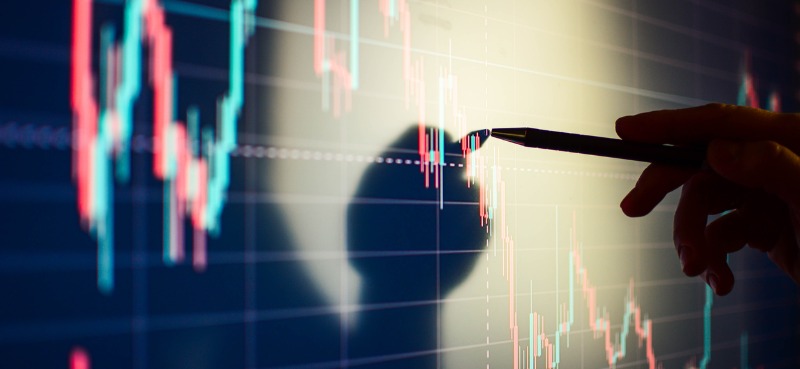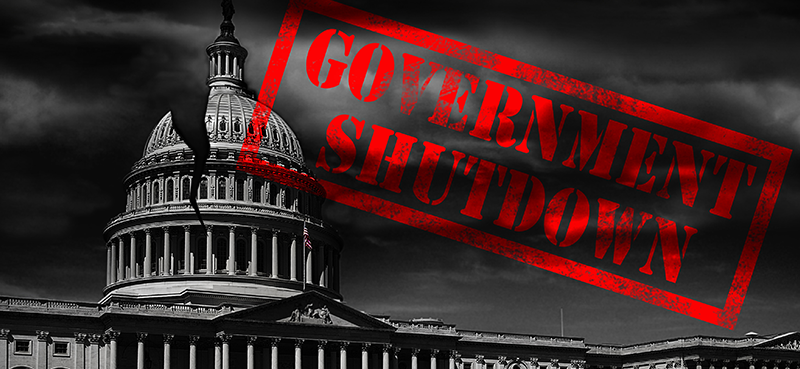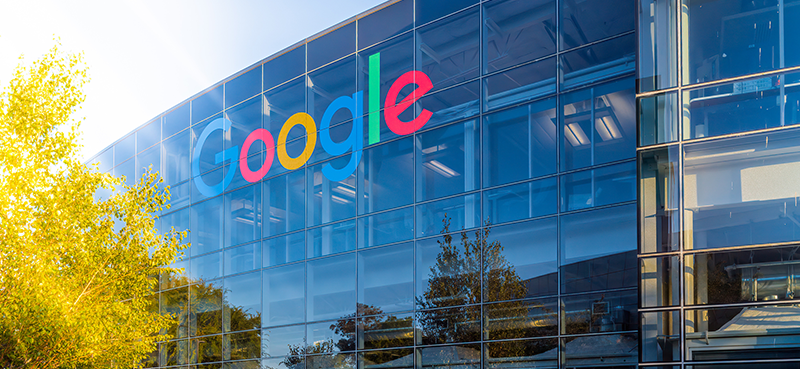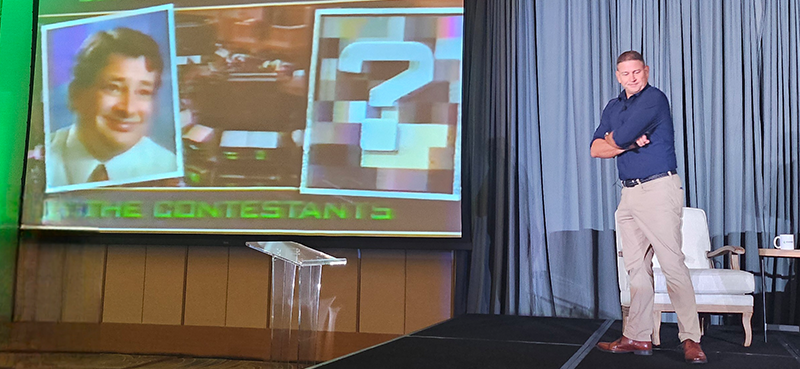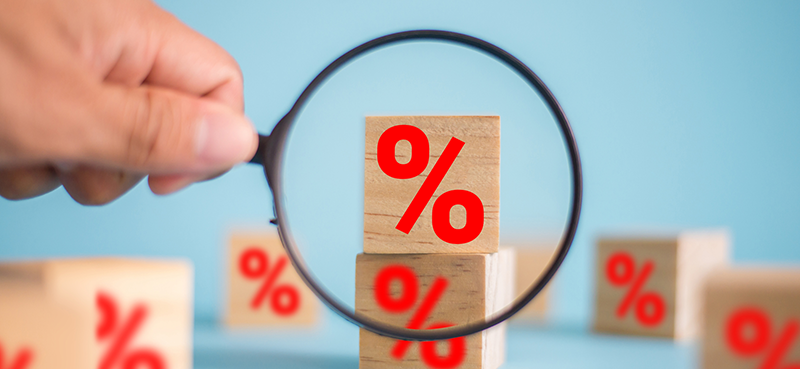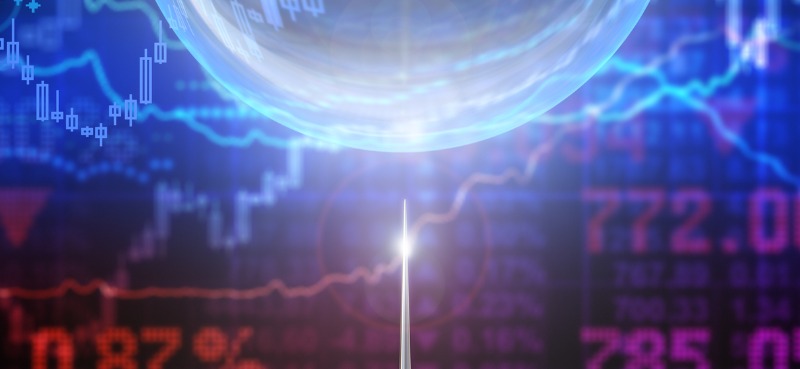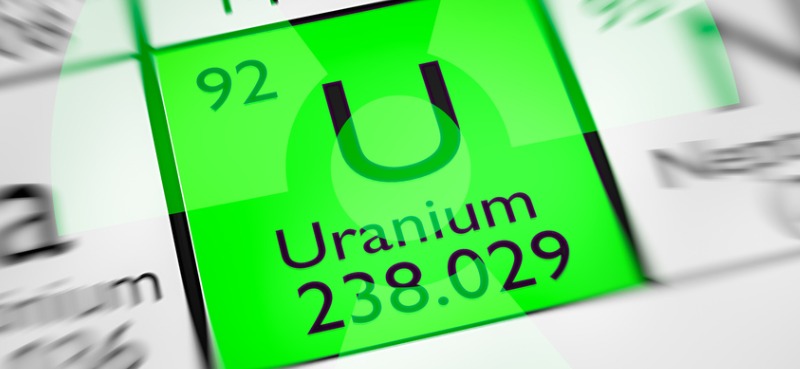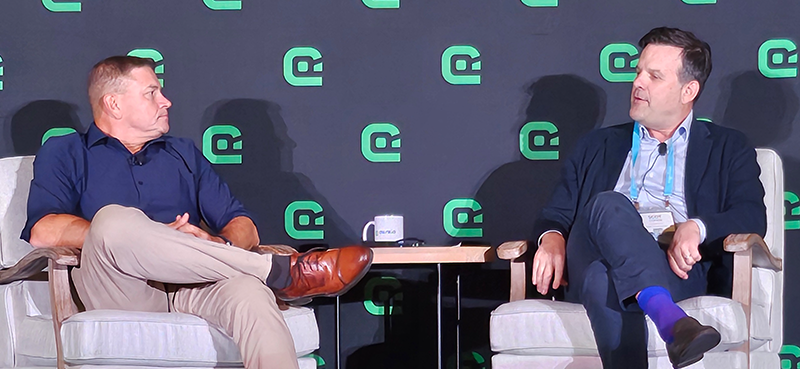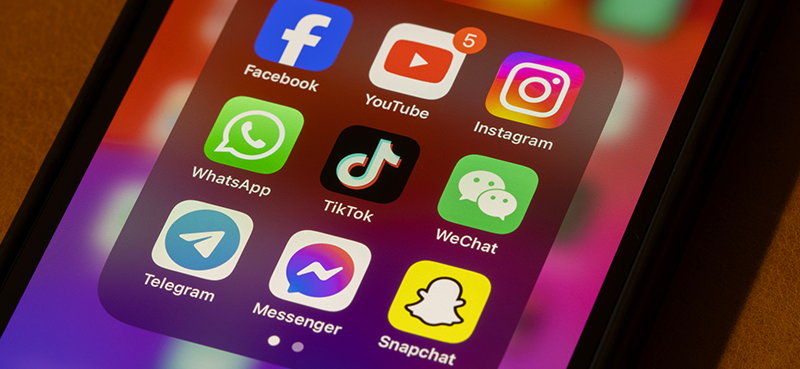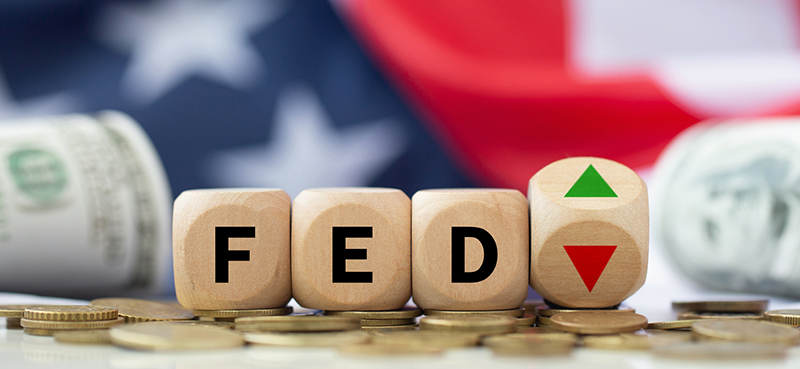Frank Curzio
Inflation isn’t the biggest threat to the market
This morning’s Consumer Price Index (CPI) reading came in at a staggering 9.1%… but because the CPI is a lagging indicator, this number leaves out important data that shows we could be near peak inflation.
On today’s show, I explain why inflation is no longer the biggest threat to the market… and what’s really concerning me about the economy right now. And Daniel and I debate what the Fed needs to do to bring back the bull market.
Could Elon Musk end up in hot water—or even jail—for backing out of his deal to buy Twitter (TWTR)? I recap the dramatic, ongoing spat between Musk and Twitter… and how it’s a battle of who’s more full of s***.
Daniel and I disagree about whether to consider Twitter for a trade… and I highlight the biggest risk that no one is talking about.
- Why today’s high CPI reading could represent peak inflation [1:53]
- The biggest risk to markets right now isn’t inflation [7:10]
- What we need to see from the Fed for markets to rally [13:50]
- Could Musk go to jail over the Twitter fiasco? [19:44]
- Musk vs. Twitter: Who’s more full of s***? [21:50]
- Is TWTR a good trade? [27:00]
- The biggest risk to Twitter no one’s talking about [28:40]
Wall Street Unplugged | 919
Inflation isn’t the biggest threat to the market
Announcer: Wall Street Unplugged looks beyond the regular headlines, heard on mainstream financial media to bring you unscripted interviews and breaking commentary direct from Wall Street right to you on main street.
Frank Curzio: What’s going on out there? It’s Wednesday, July 13th. I’m Frank Curzio, host of the Wall Street Unplugged podcast, where I break down the headlines and tell you what’s really moving these markets. Today is a fun day, Wednesday day, Daniel Creech Day, senior analyst, Curzio Research. Dan, what’s going on, man? How’s everything?
Daniel Creech: Frank, I like that, Daniel Creech Day. You know what national day is today?
Frank Curzio: Oh, what is it?
Daniel Creech: I know. It’s ridiculous, there’s something for everybody, but today is National French Fry Day.
Frank Curzio: Is it National French Fry Day?
Daniel Creech: Mm-hmm, heard that on my way to work this morning. Yeah, French Fry Day.
Frank Curzio: Yeah. So, every time I look, it’s 10 things listed as that day.
Daniel Creech: Yeah.
Frank Curzio: Everything’s a day.
Daniel Creech: I’ll tell you what the most important thing in my opinion today, is it’s Open Eve. So, The Open, The Open for golf, starts tomorrow over at the Old Course-
Frank Curzio: Mmm-hmm.
Daniel Creech: Back at St. Andrews.
Frank Curzio: Yeah, it should be pretty nice.
Daniel Creech: I’m excited about that. What is it? A five-, six-hour time change? So, I’ll be at work early tomorrow.
Frank Curzio: Be at work early, yeah.
Daniel Creech: Watching my iPad.
Frank Curzio: Yup, yup, yup. I hear you. Well, if you’re watching on YouTube, it’s nice, because you have a little bit of a different background, then you have Daniel, with no background. So, you look like you’re in the middle of nowhere. It looks like there’s a green screen that’s going to come in, but it’s cool.
Daniel Creech: Yeah-
Frank Curzio: Because-
Daniel Creech: But, there’s not.
Frank Curzio: Yeah, so we took everything down. We set up a studio in Vegas. And of course, on the way back, that’s the bag that didn’t come. And so, Daniel, you’re on an island by yourself. It looks like you’re taping in the middle of nowhere, which is cool.
Daniel Creech: Yeah. I’m in my comfort zone then.
Frank Curzio: Your comfort zone.
Daniel Creech: An island all by myself.
Frank Curzio: Oh, it’s perfect, it’s perfect. So, let’s get to it, because there was a little bit of news today, a little bit. It wasn’t that big of a deal. It’s the consumer price index, CPI.
Daniel Creech: Yeah.
Frank Curzio: I mean, it’s being talked about a little bit today.
Daniel Creech: Mmm-hmm.
Frank Curzio: Yeah, what are your thoughts?
Daniel Creech: Well, it’s going to be easy to point this. I’m not surprised that it was a little higher. The 9% year-over-year hurts, 9.1%. I think, 8.6% was the consensus, so that sucks. In reality, we all feel it’s a lot worse than that. I do like to see the market coming back. I got to give credit where credit is due. I’m not the biggest fan of Jimmy, Jimmy Cramer, but he made a point when the numbers came out. There was a good discussion on CNBC this morning that I was watching when Santelli and everybody, and Liesman, they go back and forth and they’re good characters. But, Jim came on right before the 9:00 AM segment, which he’s on and was saying, “Hey, listen. These numbers are taken at the worst time,” because the inflation doesn’t price in the significant drop that we’ve seen in energy, not so much food, I don’t think, but retails, employees, separate things like that. And you’ve talked about this in the past on, “Hey, we got to be close to peak inflation.”
Frank Curzio: Yeah.
Daniel Creech: Man, we certainly hope so, and I will say, I’m surprised that the market is coming back, especially the NASDAQ. I mean, we’re taping this midday, but the NASDAQ was down 2%, I believe, at open, and it’s green now. Does that say signals are all clear? No. However, I do think that, that’s strong, to see the market come back, inflation as they expect, “Hey, your hands are tied at the Fed, you’re hiking 75%-
Frank Curzio: Mmm-hmm.
Daniel Creech: Or, 75 basis points, excuse me. Little bit of a difference there. 75 basis points at the end of this month, guaranteed. Maybe, even 1%, in my opinion, what do you think on that?
Frank Curzio: There’s risk that you have to be concerned about, and then there’s headline risk, right? And this is headline risk. And it’s important for you to know the difference, because said this two weeks ago, three weeks ago, that we’re close. I thought we would hit peak last month. It’s definitely going to be peak this month. I’m not surprised it’s a little bit higher. Not only have we saw, and again, this is not this month’s reading. This is last month’s reading. What do we see? We saw gas price hit record highs, right? It’s $5 a gallon, on average. We’re seeing a lot of the data over the past three weeks, especially, has come down significantly, which we’ve been talking about. So, next one’s data is probably going to be a lot weaker, you’re going to see inflation just moderate.
Frank Curzio: It is going to come down to… And again, when the headline comes out, everybody overreacts, but this is a lagging indicator. And when you look at a data, right? So, we’re looking at CPR 9%, 9.1% higher than the 8.8%. And you knew was going to come out higher, because Wall Street, not Wall Street, but the White House did a great job of leaking this to the media. Because, the last two days I saw 20 stories saying, “It’s likely going to come in higher. It’s likely going to come in higher. It’s likely going to come in higher.” So, it was a good job trying to anticipate this. And the market’s initial action was like, “Holy shit.” Right? And we saw, I think, the tenure go up to 3.2, or 3.1. And now, it’s back to 2.8 I think, last I saw.
Frank Curzio: So, Dow’s still down a little bit. Again, we have inflation, but we need to see it moderate. But, if you’re looking at the bigger picture here, oil was 130, it’s $96. And a lot of this came down recently and this isn’t being factored in. Gasoline price of $5, little bit over $5 on average, they’re 4.60 on average right now, that’s a significant difference. It was $3 and change a year ago. So, we’re still paying much higher prices, and we’re still going to feel it. What’s important, is this is dictating Fed policy and Fed policy drives the markets. So, this isn’t like, “Frank, we still have crazy inflation, it’s still high.” This is all about the Fed policy. Because, when you have uncertainty what the Fed’s going to do, that’s what leads to the risk of the market. And that’s why we saw everything crash as much as Dick, because the Fed had no f-ing clue what it was doing, right?
Frank Curzio: It was transitory, transitory, transitory. Then, “It’s not transitory, it’s going to be the highest inflation we’ve ever seen in our lives, in a minute.” Right? So, finally they got it. But, now the Fed is ahead of the curve, they’re doing their job, right? So again, you could destroy the Fed, people love destroying the Fed, but the big result is when you see inflation, is commodities go through the roof. And that’s what we saw. It was hard to get lock-in prices for home buying. If you’re building a house, you know what I mean? Copper prices are 3.20. They were 4.60 a month ago. Lumber was 1,300 in March, it was 1,000 in May. It’s 680 now, right? So, we’re seeing it almost on every single level. And you’ll also see more layoffs being announced, which means what? You’re not laying off people, if you have pricing power.
Frank Curzio: A lot of these companies have pricing power. That means, they’re raising prices. When they’re raising prices, that’s why you see inflation go through the roof. And inflation’s going through the roof, because people are paying these prices. When they stop paying these prices, that’s different. But now, you’re seeing a lot of these companies start laying off, especially in technology sector. And as they’re laying off, that means that they no longer have that pricing power, which is telling you that inflation’s going to come down. So, to me, inflation is more predictable now, than it was over the past 15 months, 18 months, when you’re looking at the Fed. Now, you’re going to see inflation come down. The bigger risk, what I think, again, that’s why you see the market come back a little bit. The bigger risk, is because now you can dictate what the Fed’s going to do.
Frank Curzio: It’s a 75 base point rate hike that we’re expecting. But, after that, if the numbers come down significantly, and then significantly again, the next meeting. So, the next Fed meeting is at the end of this month, it’s in a couple weeks. They’re probably going to raise my 75 basis points. And the next one, I believe, is in September, you’re going to get two more readings. Those readings are got to be weak. They’re going to slow down. They’re not going to go 75, I’ll be surprised if they go 50. They might even say, “Okay, we’re good, because we’re a lot higher.” And that’s going to be a catalyst for the market, which we’ve been saying. So, the bigger risk I see here, Daniel, is labor. Delta reporter, record revenue, but margins fell and they fell pretty hard and they blame fuel costs, which is fun, that’s temporary. Fuel costs are down now. Okay, fuel costs will eventually come down, right? That’s what I believe.
Frank Curzio: But, the big thing, is the labor. And they can’t get pilots. So now, it’s just like the restaurants, where you’re seeing strong demand. You can’t get the people at work, then what do you do? Right? So, the labor situation right now, whatever happened during COVID, that is a major, major concern. And I think, people just were staying home and saying, “You know what? I don’t have to go to work every day. I’ll find other jobs that I could do.” But, they’re having trouble. And if you don’t have pilots, that means you can’t keep up with demand, because you’re seeing record revenue. But obviously, you have to pay your pilots more, you have to pay… That’s a pretty big issue we haven’t addressed yet. But, let’s see, because when I say the Fed’s doing its job, you’re looking at income and wages are coming down.
Frank Curzio: So, when they’re coming down, that’s a pretty big deal when you’re seeing prices going up. So, it’s just a matter of time before inflation comes down. This number didn’t really surprise me and the market coming back didn’t surprise me. But, the next thing that we need to worry about, because inflation’s getting predictable now, you’re going to see it gradually come lower and lower and lower. We’re seeing it in all the data points. And again, this CPI has a lagging indicator, which is showing in the past. But, if you look at the last three weeks, if we hold up here, this number should be significantly lower, significantly lower where it’ll create a nice headline number, like it did today, where the market might shoot up. It’s the labor that’s my biggest concern.
Daniel Creech: Well, and I don’t see how that’s going to get any better. I’d like your opinion on this, but how are we not just set up the states for stagflation? So, even if inflation doesn’t continue to go higher and higher, let’s say it goes down a little bit, it’s still really elevated, especially on a year-over-year basis. And how can wages increase any amount significantly, from next month’s reading to August, to September? I just don’t see how that’s going to happen. Which means, there’s just a lot of pain there. I think, you’re right on, man, if the Fed… I think, the Fed, the only reason they pause in September, is because it’s a midterm election. And I know, I like to get into politics, that’s my opinion on that. If they’re serious about fighting inflation though, how do you pause there? Why don’t you keep going?
Frank Curzio: It’s all data based.
Daniel Creech: Well-
Frank Curzio: So, it’s based on the data. I’m not saying that… For me, I think, that data’s going to be significantly lower, because what they’re doing, is not only going to report recession, right? We’re going to go into recession here.
Daniel Creech: Yeah.
Frank Curzio: Now, you’re looking at a depression. If you’re continuing… They didn’t go far enough, and we all know that. Now, they’re going way too far. It’s too far too fast. And this takes time to adjust, just like inflation takes time. And you’re like, “Well, it’s supposed to moderate, it’s supposed to moderate.” It didn’t, because you filtered the market with money, in a way that you’ve never did before. You handed it directly to people. You didn’t hand it to the banks to shore this up. You didn’t hand a little bit. You handed $11 trillion, right?
Frank Curzio: And then, you handed almost half of that. When all the asset prices came back and everything was at all-time highs. Houses, household wealth, cars, everything, every asset you own was at all-time highs. And it was pedal to the metal still. And the politicians still wanted to keep going, okay? Build Back Better, thank God, that didn’t get passed. It was like, “Just keep going and going and going and going, as long as we can, until we can’t anymore.” And now, you’re seeing it at the leverage process. Now, you’re seeing it in risky assets. You’re seeing the Small Cap Index, Russell’s trade at its most attractive valuation in probably, 25 years. It’s never been here, right?
Daniel Creech: Yeah.
Frank Curzio: So, in terms of valuation. You’re looking at Bitcoin, oil leveraged coming out, which is a great thing, right? We just came back from the conference and the amount of ideas that we saw, just in the innovation’s incredible, but you have a lot of shit in that. So, you’ve seen the leverage, all the garbage come out of the market right now. You got to be careful that you can’t go too high. So, by going on, hold in September, doesn’t mean that you can’t come back and raise, but I think, you got to see significant amount of numbers, where inflation’s going to come down enough to say, “Okay, well where we could pause, let’s see over the next couple of months and see what happens.” That’s what I think. But, if we get another high inflation reading again, which I don’t see based on the data, this isn’t a guess, this is the data, everything’s really down over the past three weeks, which this current number is not factoring in. And that’s why you’re seeing the market come back. It’s going to be interesting. But, I think we’re at peak inflation.
Frank Curzio: We’re going to be what, 2.5, two point… I mean, if they raise 75 basis points, that’s what? 2.5, right? And then, if they raise another 50, we’re looking at three, at 3% by next year. Now, if you see inflation coming down to 4%, 3% now, the Fed’s in position to say, “Okay, now we can stimulate the economy a little bit and start lowering rates.” Again, this period right here, is going to be incredibly, incredibly ugly. We’re going to see the numbers come out for this month. And last month was the absolute worst month. I don’t see it getting worse, because you’re seeing companies lay off, they don’t have the pricing power right now. You’re seeing commodities absolutely crash. So, that’s why I feel they might say in September, depending on the data, if I’m right on this, depending on the data, we’ve been pretty right.
Frank Curzio: Predicting this for a very, very long time, that we’re close to peak, but it’s going to be interesting to see what they do this September meeting. This meeting is pretty predictable, it should be a 75 basis point hike, but let’s see what next month’s data and month after that, if they come down significantly, Fed might be like, “Look, where we are, it’s working. So, let’s stay where we are, because it’s putting a lot of pressure, rates are higher, less borrowing.” The housing market’s come down significantly. You’re seeing prices start to moderate in areas. That’s the big factor there. So, we’ll see. It’s based on the data, based on the data. It’s not like, it’s definitely going to happen, or not. Next month, I might say, “You need another 75 basis point hike immediately.” So, let’s see what happens with the data right now. The data’s telling me that one more 75 base point hike. And there’s a shot that they can go on hold in September.
Daniel Creech: You think, Pal’s got it in him, to do a 1% at the end of this month, instead of 75?
Frank Curzio: No, he won’t do a 1%-
Daniel Creech: No?
Frank Curzio: Because, they’re seeing the data that I’m seeing now. They should be smart enough to realize that, this could hammer.
Daniel Creech: Oh, don’t give him credit there.
Frank Curzio: This could destroy and hammer us. This could hammer us, if we go too high and swing the pendulum the other way. It’s going to be even worse than what inflation is right now. Because, at least people… Look, people are working, they have jobs, the labor market’s still okay. The banks are in great shape, right? In terms of the capital and the balance sheet. So, it’s not like an end-of-the-world scenario. When you have a massive recession, to the point where it’s near depression, and you’re going to push us near that, that’s the bigger concern right now, because you are seeing inflation moderate a lot of different things. You see gas prices, guys are definitely down around… They have to come down a lot more. You need to see moderation. That’s what the Fed wants to do. They want to stop it, and when it stops, now they can look at data and say, “Okay, do we need 25? Do we need 50 basis hike?” But, so far what they’re doing is working. You’re definitely going to see it in the data next month. So, yeah, I don’t know.
Daniel Creech: I like that. We touched on this a couple of weeks ago. Because, the crazy thing on, when does the markets take off? And what are the markets like to see? And I like how you pointed out that the Fed policy is now driving the stock market, has for some time, since the whole transitory switch. This is from Goldman Sachs, Global Market Strategist, Vickie Chiang, says that, “Going back to the 1950, the S&P 500 has sold off at least 15%, on 17 occasions. 11 of those 17 occasions, the stock market managed a bottom, only around the time the Fed shifted towards loosening monetary policy again.” Now, what I want to look for, is if we get to pause in September, I don’t see how that’s not bullish for markets.
Frank Curzio: Mmm-hmm.
Daniel Creech: But, some forecast, depending on where you’re reading, you’re looking out at the first quarter, or maybe the end of the first quarter next year, if they do a rate cut, we talked about, we threw out some fun stats last week on, “Hey, if they get to 5%, just interest on the debt would be so high.”
Daniel Creech: I don’t think, you have to wait until that point, but that’s an interesting data point to me, that we’ll see where that stacks up. Because, they are driving the market. They’ve been driving the market for a long time. And it’ll be interesting to see that. I know, we can wait into things until then, but until then, I expect the market to be… I just think the easier road, the road less traveled is lower.
Frank Curzio: So, here’s how I look at that data, right? So, I look at that data, and I haven’t seen that yet, right? You said, when it’s down 15%. Usually, you see the market bottom when the Fed starts easing a little bit, or announces are going to ease, right?
Daniel Creech: Shifting from-
Frank Curzio: Shifting, shifting-
Daniel Creech: Tightening, though. Yeah.
Frank Curzio: Okay. Now, okay, that’s fine. So, people might be like, “Okay, I’m going to wait.” And that could be to next year. We’re down 30% on NASDAQ. We overshot, right?
Daniel Creech: Right.
Frank Curzio: So now, that’s why, for me, I’m buying stocks, because we totally overshot, knowing that the news coming out over the next three to four months, is going to be horrible. But, there’s a shot that we are very, very close to bottom. Especially, if inflation moderates and the Feds still raising rates. Yes, I like what a 10-year is, it’s not going much above 3%, I like that. I mean, it’s not going 3.4, 3.7. It’s not going a lot higher than that. Which, tells me that, we’re pretty close in terms of inflation moderating, at least, after the market’s pricing in. And usually, the market is… Well, the market is right.
Frank Curzio: So, just, when I look at that data, you have to say, “Okay, well, it went down double the amount they’re talking about.”
Daniel Creech: Yeah.
Frank Curzio: So, why don’t you take the survey and see how many times we went down 30% and how long it took, because I can guarantee, you’re not going to wait until the Fed actually gives a green light and says, “Okay, we’re stopping. Now, we’re going to look to low to stimulate the economy.” It’s going to happen much, much, much quicker than that, especially with the amount that we’re doing. So, that’s why, when you’re looking at data points, to me, I like to break down the data points. And being down double the amount that they’ve put in there, that she’s monitoring, makes me think, we’re probably a lot closer to the bottom. Remember, a lot of this is factored in.
Frank Curzio: I know it’s hard to see inflation, holy shit, my portfolio thing, your portfolio’s getting murdered. You’re down tremendously. A lot of people are down tremendously here on good names. Now, you’re going to see a separation. You’re seeing it with Pepsi. Pepsi, I don’t think, announced layoffs, I didn’t see that. But, they had a great quarter, they have pricing power. You’re going to see that from Coca-Cola. Some companies have pricing power and they’re good and not laying off. But, when you’re laying off employees, it’s saying that, “I’m not expecting revenue, to keep at it where it is. So, we need to cut costs.” That’s going to result in probably earnings, meeting their estimates for a lot of companies, we’ll see.
Frank Curzio: But, that’s going to be based on cost-cutting. And you’re seeing more and more companies lay off. Showing us, or that tells me that, “Okay, if you’re laying off, that means you’re expecting a slowdown.” I expect that you’re not seeing… You no longer have that pricing power, which you had over the past 12 months, at least 18 months, or whatever. But, it will be interesting, right? It will be interesting. Just, everybody has the opinion here.
Frank Curzio: We’ll see what happens, but you got to be willing… Most important point here, Daniel, is, and we say this all the time, you have to be willing to switch on a dime. You can’t be like, “Inflation, inflation, inflation, inflation, inflation.” You’re right, inflation. We talked about inflation. But eventually, the Fed is going nuts right now, doing something that’s unprecedented, raising like crazy. I don’t want to say unprecedented, because it didn’t happen until… They did in the ’80s-
Daniel Creech: Hmm.
Frank Curzio: You have to be willing to switch on a dime if the data changes. The data is going to change significantly, over the next three months. It’s going to look horrible, we’re going to fall into recession, it’s going to look terrible. But, remember stocks right now, where they are anticipating that. Anything better than that, then we definitely hit bottom. But, let’s see.
Daniel Creech: Yeah, I agree. But, the biggest driver of stocks has been the Fed forever. And now, until they change course, that’s an interesting point. So, yeah.
Frank Curzio: Well, this is the first time in a long time, where the Fed has not been predictable. Usually, they had a habit of coming out after 2008, 2009 of saying exactly what they’re going to do, predicting what they’re going to do and telling you. They have been totally, 100% wrong. They said, “We’re keeping rates low, low, low, low, low, low, low.” They kept rates low, low, low. But usually they come out, and they’re predictable. This is one of the first times I can remember when the Fed said, “It’s transitory, it’s transitory, it’s transitory.” And they didn’t say, “Wait, it might not be transitory.” They said, “It’s not transitory no longer. It’s going to be the highest inflation that we’ve ever seen.” So, it’s a total 180 from the Fed, which since 2008, 2009, a credit crisis, that’s been the Fed. That’s been the change in the Fed.
Frank Curzio: You guys come out and talk about what you’re going to do in the months ahead. This way, we ease into it and there’s no surprises. Because, sudden shocks in the system, result in what we’re seeing right now. They had a shock in the system, and that’s why the market’s all over the place, because they don’t know what the Fed is going to do. And the Fed is again, the gorilla in the room. That’s what’s going to force people’s hands, in terms of spending, that dictates it, based on policy and where rates are. Now, you’re seeing it where, “Okay, it’s getting a little bit more predictable here. And the more predictable it is, the more people are going to be comfortable.” You remove that uncertainty from the market, and you’re going to see more and more people come into this market and probably, the market finally bottom. Hopefully, we’ll see.
Daniel Creech: Hopefully, I’m with you.
Frank Curzio: Okay. So, let’s go into one more story here, which is Twitter. Man, hey, this is-
Daniel Creech: The sitcom version of the market.
Frank Curzio: Go ahead, let me hear you have thoughts on Twitter. I mean, it’s everywhere. It’s the number one story, it’s on social media. Everyone’s talking about it. Whether, it’s the market or not, it’s front page news every place, so…
Daniel Creech: The best thing that I read and watched, was when Faber pointed out, and I’m not saying that he’s wrong legally, or that this couldn’t happen in theory. But, now Twitter dropped the other day, because Musk officially pulled his deal. So, it’s down what? 10, or 11% into last week.
Frank Curzio: Mmm-hmm.
Daniel Creech: Then, it popped a little bit yesterday, or this morning, it’s up this morning, or it’s up today. Because, now Twitter’s going to sue him and just say, “Hey, we had a deal. You’re buying us out. We approved it, you signed it. We’re good.” And now, the CNBC conversation was great, because he said, “Hey, where do we go from here?” They’re going to go to court. And did you see how many days they’re asking for?
Frank Curzio: No.
Daniel Creech: I thought this was cool. This is not, I don’t want to use the word cocky, but I liked his confidence.
Daniel Creech: The Twitter lawyer team members are asking for 1, 2, 3, 4 days in court to prove their case. So, you got to feel pretty confident, if you’re only asking for four days. So, the couple of scenarios that they were playing on CNBC is, “Hey, either he forces his hand. Judge says, “You got to buy them.” So, he buys him.” Or, the judge says, “Nope, all you’re getting is the breakup fee, which is what? A $1 billion?” $1 billion, that’s not bad.
Frank Curzio: Mmm-hmm.
Daniel Creech: It’s nothing to Musk. It’s not really anything to Twitter either though. Interesting language that’s already in there. The other thing, is that the lawyers, or excuse me, the judge says, “Hey, you got to buy them.” Musk doesn’t, just refuses. And then, what happens? Boom, they lock him up, Frank. Then, he is going to tweet from jail. What do you think about that scenario?
Frank Curzio: Yeah, they’ll lock him up. I think, it’s funny. It’s so funny. They just totally, go overboard, right? But-
Daniel Creech: Now, in his case, that’s a possibility, legally. If a judge says, “Hey, you do X.” And you don’t. I mean, hell, it’s a contempt of court, right? I mean, you could technically… Right? I mean, that could happen.
Frank Curzio: I mean, you can go to jail for jaywalking. I mean, in some states. I mean, depending on what they arrest you on, that’s what they do. And they’ll get you in the room and say, “You can go away for 37 years.” Which, is a max. But, you really do two. So, I think, it’s funny, when I look at this Daniel, it’s a battle of, who’s more full of shit? Right? That’s all it is. And I’m serious. It’s not even being funny. Musk buying Twitter, he says he is going to purchase at 44 billion, that’s $54 a share. And then, what do we have when he first made that announcement? Do you remember? A lot of that is actually removed, because I went back to look at stories and it’s amazingly removed from a lot of places, which doesn’t surprise me.
Frank Curzio: But, remember the uproar, right? That Twitter contacted all the leftist media, they went after Twitter.
Daniel Creech: Oh, yeah.
Frank Curzio: “You can’t sell it to him. He’s an ass. Can’t sell it. Can’t… No way, no way, we need to control this. No way, no way, no way.” You had Cramer come out and say, “No way, the board’s got to do its job and reject this offer at $54, they got to reject it.” And then, Prince Alwaleed, who’s one of the large shareholders, strongly rejected the offer saying, “It’s $54 a share. It doesn’t come close to the intrinsic value of Twitter.” Okay. Well, now the stock is 35. Where the fuck are you guys? Why aren’t you buying the stock hand over fist, if you think it’s worth $70, you assholes? No, no, no, no, no, right? They’re not buying it now. No, right now… So, now it crashes and now Twitter’s like, “Okay, we know Musk isn’t going to come to the table. We didn’t have to hand in the data, because I know, it’s not less than 5% of these accounts.”
Frank Curzio: If it’s anything less than 20%, the dummy accounts and the bots and stuff like that, they’re lying, right? I mean, we all know, we all see it, we all have proof of it. You could see 50 accounts saying the exact same thing, word for word. Especially, when it comes to political agenda, we all see it. It’s there for you to see, right? So, we all know it. And it makes sense for social media platforms to do this, to amplify the numbers, we get it, right? And it’s so hard to track. So, Twitter right now, what Twitter’s fighting for, is they don’t want Musk to buy it. They really don’t. What they want, is the breakup fee. And that’s what they’re fighting for. So-
Daniel Creech: But, what good is that going to do?
Frank Curzio: Well, at least they get $1 billion in their pocket. Why not?
Daniel Creech: Yeah.
Frank Curzio: Because…
Frank Curzio: I mean, granted, it’s now $35, and now you’re looking at your wallet going, “Holy cow, maybe we should have accepted that offer.” Because, when they made this offer, it was April. I think, it was April 1st, April 2nd. When they made the offer, the stock went from the 30s to $50, and that’s when they were saying, “No way, the intrinsic value’s worth more.” Remember, this is April. The market’s crashing. Especially, technology companies, especially social media companies, Facebook… Everything is crashing. It’s crashing, it’s crashing. They’re rejecting this offer. I’m like, “How could you just come out and reject?” So, they didn’t actually come out. They had the media say it, and all the shareholders say, “We reject, we reject, we reject.” I think, some employees even left from Twitter, made a big deal about it. Now, that it’s crashed. They’re like, “Well, maybe we want it. Now, we want that offer.”
Frank Curzio: So, it’s going to be interesting if Musk actually goes there and accepts this offer. I don’t know, if that’s going to happen, or not. I don’t think so. But, I would like to see the data and it doesn’t seem to me like they made it public, but there’s more of a bigger point here, Dan, that I want to talk to you about. There’s a code when it comes to taking over companies. And it’s not just law and legal, but when you make a bid for a company, yes, there’s a breakup fee. But, usually that breakup fee only happens, if maybe, somebody else comes in and buys you at the higher price, that’s what the breakup fee is for. When you make a bid for a company, it means you’re buying it, you did the due diligence. You announce it publicly, you’re buying it. So, to pull that, that rarely happens. Unless, you find something under the hood.
Frank Curzio: And a lot of times, a company won’t really accept the offer, but we have a bid made and they accepted the offer on April 25th. So, right there, the deal should go through, and he’s asking for data points. He has to really prove that they have a lot of bots and everything and whatever, that he didn’t get to see the data, because that code, is if you have one buyer and the seller of the company and they agree, it should be a done deal. You got to look at the books and go through and do due diligence. And that’s what he’s saying, that it didn’t happen. If that didn’t happen, that’s fine. But, most of the time in our industry, when you see that, the deal gets done. And then, you have Spirit and JetBlue, or whatever, they’re going back and forth, because there’s bidders there and they keep raising their bids and they’re going back and forth.
Frank Curzio: The shareholders, “What’s better? That’s fine, that’s normal. And whoever loses that bid, is going to get a breakup fee. That’s cool, right? That makes sense. Because, you do a lot of due diligence on it. Somebody comes in and ups your bid. You want to make sure you get paid and you don’t waste all your time. So, the code, is once you make that offer and it’s accepted, it’s usually a done deal. And the fact that it’s not, if they cannot prove this, I think Musk is going to lose a lot of credibility here. They have to be able to prove. And for Twitter to come out and actually sue them, it means that they could prove it somehow, that they gave him all the data and he just decided to just pass on the deal for some reason.
Frank Curzio: So, it’s going to be interesting, to me, it’s a soap opera. I think, you have to avoid Twitter stock. And again, it’s great, because it’s entertaining as hell and people love to be entertained. Yeah, that’s our culture. We have to be entertained all the time, and this is entertaining and Musk tweeting, which some of the funny tweets and everything, that’s where we are right now.
Daniel Creech: Yeah. The interesting thing is, so Twitter’s up, a little bit above $36. It’s up 6,5% today. You know who is buying shares? Is short seller, Hindenburg Research. Now, they’re pretty popular. They’re up there with Citron Research-
Frank Curzio: Mmm-hmm.
Daniel Creech: And they’ve had a lot of good calls. They’ve had mistakes like everybody else, and wrongs. But, they tweeted out today, they’ve taken a significant long position in Twitter. Now, I don’t know what significant is. But, there’s some arbitrage there. And I don’t see how… Now, today’s easy, because literally the stock is up right in front of our eyes today. But, I do think the odds are in your favor, if you wanted to be a trader, which I am a terrible trader. If you had a gun in my head, I’d play Twitter from the long side here, just as… Because, they’re not going to work-
Frank Curzio: Why would you play Twitter from the long side?
Daniel Creech: Because, I think the road less traveled is easier to go higher towards the 54 number, excuse me, than lower.
Frank Curzio: Mmm-hmm.
Daniel Creech: That’s the only reason.
Frank Curzio: Okay. You may be right there, right? Because, you’re saying-
Daniel Creech: Again, as a trade, because there’s going to be a lot of headlines that come out around this, because it’s entertaining, and it’s got the richest guy in the world and one of the most popular platforms. If-
Frank Curzio: Mmm-hmm.
Daniel Creech: Headlines are coming out, as they gear up and “Hey, does the trial get expedited? Does it get…” It’s going to get a lot of press. Markets move on headlines and things. If, wind comes out, or headlines come out saying, “Hey, Twitter’s got a great deal. They’re confident. They think that this is going to stick.” I don’t see how the shares don’t at least melt up. I think, it’d be crazy volatile. But, if I had to choose, I’d play for a little bit of bump. And again, it’s already up 6,5% today, so…
Frank Curzio: Here’s why I don’t agree with that, okay?
Daniel Creech: Ooh, that’s nice. So, you take lower?
Frank Curzio: This is what Hindenburg’s thinking, “Okay, if the stocks are all the way down, if Musk…” Musk could buy it, maybe at a little bit lower price, they agreed to. That’s fine. So, if he buys at 54, it’s 35 right now, or 37 right now, after it’s up today, that’s fine. I get it. Or, he goes away and you’re saying, “Okay, we’re pretty much a lot lower, than we were. And this is where it was trading pretty much right before the bid.” So, I see they’re thinking, little risk. Here’s where this could really blow up in their face. If Twitter really goes after Elon Musk and Elon Musk decides to leave this platform, that will crush this company, you got rid of Donald Trump, which was terrible for the company, because Donald Trump, the amount of people that hate him were more than the people that like him.
Frank Curzio: As you know, with the Howard Stern thesis, that’s what creates volume. Massive volume is when you have people hating you and half of the audience coming in and saying, “No, you shouldn’t hate this guy, because you love him.” It triggers all the algorithms on all social media. It’s like the Peter Schiff theory. That’s why he’ll never kick anyone off, that talks bad, regardless. And he’s a genius when it comes to marketing. If he decides to leave this platform, the following that he has, it’s 100 million followers. These are all Bitcoin enthusiasts, these are the people that post millions of times. These are the people on social media all the time. This will hurt them significantly, significantly, because it’s not just Elon Musk and his Twitter followers. Everybody’s talking about it. It’s why it’s being covered so much because everybody’s clicking this, right?
Frank Curzio: If you think about it, it’s just that the normal story. A guy wanted to buy a company and he doesn’t think it’s right and he is not buying it, right? If you remove Elon Musk and put an icon, nobody cares. But, the reason why it’s getting so many hits, is because he has that star marketing power and the massive, massive audience. And even the crazies and even the Reddit crowd and stuff like that, they love him. The Tesla crowd. I mean, Tesla, wouldn’t be this high, if… Again, the valuation doesn’t support it, but it supports it, because of Elon Musk. If he comes off this platform, this thing’s going to crash into the 20s. That’s what they should worry about. So, this isn’t a layup and it’s come down and they might buy it. And I see it going along, right? Without Musk, this stock is not worth $35.
Frank Curzio: It’s not even close to $35 and it’s probably maxed out at its valuation right now, if he pulls away. So, if he doesn’t pull away, you’re going to sound like a genius. Or, if he comes in at 48, 49, 50 instead of 54. Again, you’re going to make a lot of money. I wouldn’t be taking my largest position here, because Musk and you see him tweet, you see how nuts he is. He’ll find another platform, he’ll go someplace else. But, if he’s like, “I’m done with Twitter, no more.” I mean, you know how much traffic’s going to come off that site? And I’m not just talking about the traffic from Musk, but just all-
Daniel Creech: No, we don’t know. We don’t know the data.
Frank Curzio: It’s going to be massive. It’s going to be massive. And I mean, look at Donald Trump, look at all the liberal stations and look at their numbers when Donald Trump lost the election. Look at them now. They’re all at five-year lows, seven-year lows, they are all getting crushed. So, you got to be careful, who you kick off your platform. Because, the guy you hate the most, is the reason why you’re in business. Because, you got someone to talk about all the time of how much you hate him. And they miss Trump being president, these liberal stations, because you’re looking at the data, looking at MSNBC, you’re looking at the numbers, absolutely crash with so many of these little media companies. Yeah, it’s interesting. That’s the biggest risk. If Musk says, “You know what? I’m not on Twitter anymore. The hell with you guys, goodbye.” This thing could really, really, really get nailed.
Frank Curzio: So, it’s interesting. Let’s see what happens. For me, I would avoid it. Everything else out there, this is… Again, if you put a different name, take out Elon Musk, no one’s really mentioned this. You’re getting lots of hits, and we’re talking about it right now. Because, everybody’s talking about it, we’re getting questions on it. To me, it’s really not a big deal. It’s about one company and you have both sides, who are… Board of directors are a bunch of idiots, they should accept the offer right away, they didn’t. They went to the liberal media to attack Musk. And then, when it’s now crashed, now you want to accept it. To me, it’s two clowns with a nice story that everybody’s interested in, and I’m more worried about money and investments. To me, I think you have to avoid this.
Daniel Creech: Oh, I agree with that. I like that. Hey, I said, if I had a gun to my head, what I do.
Frank Curzio: Yeah. No, no-
Daniel Creech: I’m not trying to go and leverage up there.
Frank Curzio: They might be right. And Musk comes in… But, I’m just saying, if Musk leaves this company-
Daniel Creech: But hey, if the deal is a deal, I think, the stock would go higher. That’s all I’m saying.
Frank Curzio: Yeah.
Daniel Creech: If a deal is a deal and they get legality on it, I just don’t see that. It’ll just be fun to watch unfold.
Frank Curzio: I can’t… Why would you purchase a stock now? Pay the $1 billion fee. Pay the $1 billion fee, because if he paid for the stock now, it’s down, what is it? Probably, about 12, 13 billion from the price you wanted to pay. Pay the $1 billion fee and you save money.
Daniel Creech: Yeah.
Frank Curzio: And then, you could buy more shares down here, if you want, right? You could buy more shares if you really think it’s undervalued. But, that’s what pisses me off the most. Because, all these assholes that are saying, “The intrinsic value, it’s worth much more.” When he came out at 54, it’s 35, why aren’t you guys buying? Why aren’t you guys buying like crazy? Because, you think it’s worth a lot more, at 54. You don’t think it’s worth a lot more at 35? That’s what pisses me off, where it’s like a joke. They think everybody’s idiots out there, when you see that. But, let’s see what happens and yeah, for me I would avoid it. But again, if you like to trade, it’s probably going to be a good trading opportunity. You’re going to see it all over the place. Because, if Hindenburg is really, really long, you could see a lot of shorts come in.
Frank Curzio: It’s going to be interesting to see both sides of how they play this. Because, I do see a lot of risk. It seems like there’s no risk at 35, but there is a lot of risk at 35. If Musk pulls a rug out and says, “I’m no longer staying on Twitter and I’m gone.” And that’s the biggest risk, so…
Daniel Creech: Well, we’ll watch it unfold.
Frank Curzio: Absolutely.
Daniel Creech: Stay tuned here.
Frank Curzio: And yeah, questions and comments. Daniel, what’s your email address?
Daniel Creech: daniel@curzioresearch.com.
Frank Curzio: Okay, mine is frank@curzioresearch.com. If you have any questions, comments, feel free to email us. But, that’s it for us today. Tomorrow, really, really, really, really, really great interview. I’m excited. I won’t give it away, but it’s a first time guest and someone that… She… One of the first women to do something, and it’s right up my alley, which is amazing. And I’ll give you a hint, she owns… First woman, black owner of two professional basketball teams. So, you can go look her up. We’re going to have her on tomorrow. Just an amazing story, amazing person. And it’s going to be a lot of fun. So, I’ll see then, guys. Any questions, comments, again, frank@curzioresearch.com, and take care.
Announcer: Wall Street Unplugged is produced by Curzio Research, one of the most respected financial media companies in the industry. The information presented on Wall Street Unplugged is the opinion of its host and guests. You should not base your investment decisions solely on this broadcast. Remember, it’s your money and your responsibility.
Editor’s note:
For easy access to an outstanding portfolio of stocks set to withstand inflation and build long-term wealth, join Unlimited Income…
Month after month, Genia Turanova uncovers assets that deliver market-beating yields… AND quick capital gains.


